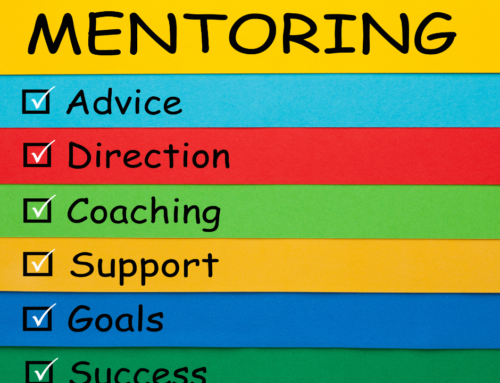You Can Increase Your Influence Through Respect
Before we begin today’s post, please be sure you have taken your quiz and determined your score. It’s all about knowing yourself as others understand you. It’s quick and painless – almost!
I have had a good deal of feedback from the article Know Yourself As Others Know You.
The checklist serves as a good reminder of who we want to be and what we can do daily to be that person. Don’t get too attached to your scorecard. This has been a rough year, and many of us have been on edge. But it is a place to start, and with our 1% rule, you can be a decidedly enhanced leader before summer.
The Craftspeople
If you scored 35 or above in your quiz, I have named you Craftspeople. People who have a good deal of respect in how they lead others become special in any organization.
A Craftperson is usually the person with whom we feel most comfortable in difficult situations. They think of others first, go out of their way to help, and have infinite patience.
Able to discuss emotional topics rationally and calmly and to sincerely listen to others, craftspeople don’t need to have all the answers because people feel better for having shared with them.
There are four characteristics that a typical craftsperson demonstrates.
Each characteristic contributes to their style differently. We can describe them using the acronym PALS, which stands for Praise, Amity, Listening, and Sensitivity.
The Four Characteristics of Craftspeople
Praise
Of all the respectful habits, praise is the simplest.
It costs nothing, takes little time, but the benefits are long-lasting.
It is merely a matter of complementing someone when they have done something well. It can be about work or something unrelated to work.
Although giving praise is simple, here are some guidelines to ensure that people will remember and appreciate it.
- Make a habit of looking for opportunities to praise others. If you don’t look for people doing things right, you will only notice doing something wrong. That’s just human nature.
- Be sincere. And don’t say it if you don’t mean it.
- Be immediate. Praise the person right after they have done something well.
- Be specific. Tell them exactly what they did well.
- Make a big deal of it.
Amity
Amity describes a friendly, cordial approach to others.
If you show amity, you place a high value on work relationships and politeness in your dealings with others. You don’t avoid conflict but approach it with a win-win attitude.
This is more an attitude than an action. The actions come from your dedication to be a happy, successful, and helpful human being. It’s not as easy as praising because this is your personal growth in action. And growth takes some effort.
Listening
This is another relatively simple concept and one, like praise, that makes a big difference in your respect quotient.
Many people think that if they are sitting quietly, and looking at someone, then they are listening. That is not the case.
True listening is an active process in which you were leaning forward, asking questions, acknowledging the other person’s point of view, and making appreciative comments.
Others can tell if you are listening, and it is difficult to fake.
There are a couple of challenges to good listening, and if you overcome them, others will see you as a better listener.
Stop Interrupting!
Think of a time when you were trying to say something important to you, and you were repeatedly interrupted.
How did you feel? Well, that’s how most of us feel when we are interrupted. You may sometimes interrupt to disagree with someone, or sometimes interrupt because you agree and want to add your voice, even before the other person finishes speaking. Regardless, interrupting even to agree is disrespectful.
In our Respectful Workplace workshops, when we ask participants to list behaviors that they consider disrespectful, I can guarantee that the number one behavior is interrupting.
Don’t Hijack
Hijacking occurs when someone is telling you something, and soon as they finished speaking you hijack a conversation.
If you want to be seen as someone genuinely interested in what people say, stop hijacking people. Keep the conversation focused on the other person, which is Dale Carnegie’s primary rule for Making Friends And Influencing People.
Another concept closely related to listening is empathy. Respect craftspeople are skilled at this. Empathy responds to an emotion or feeling in a way that shows you are trying to understand how the other person feels. Empathy helps build respect because it shows the other person you are interested in what they are saying.
Sensitivity
Some people have no idea what others are thinking or feeling.
As a result, when they act disrespectfully, they are oblivious to the impact that they have on others. Respect craftspeople, on the other hand, are extremely sensitive to thoughts and feelings. How do they do it?
There is no secret skill. Anyone can become more sensitive.
The most important first step is to observe people and notice little things about their facial expressions, tone of voice, and posture that gives clues about what they are thinking and feeling. It takes more attitude than skill.
If you decide to become more sensitive, then talk less, watch, and listen more.
You will start to notice clues to how others are feeling and what they are thinking. Then you will be able to respond helpfully. You will become a more sensitive person.
Keep Growing
Another suggestion is to access resources that are designed to elevate your emotional intelligence. Fiore Group Training has been working on some tools that will be launched and available for you in the coming weeks. As an example, here is a link to one of our micro-learning tools about Emotional Intelligence. We call our micro-learning tools Bite-Size Learning Videos. I hope you enjoy it.






